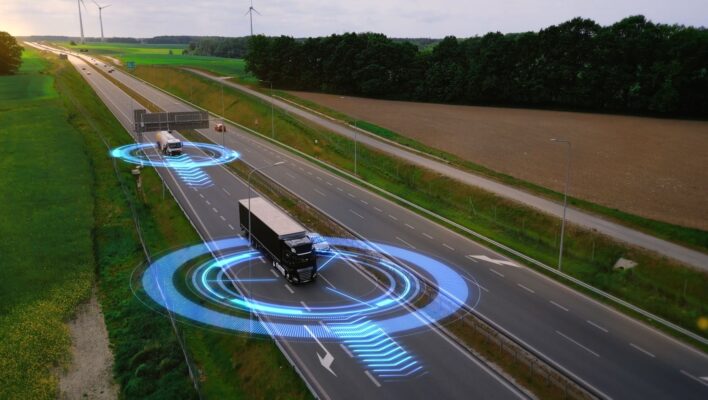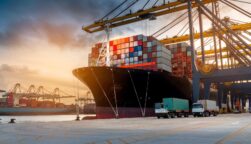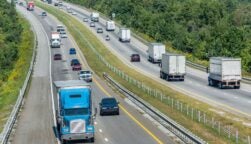The logistics industry is preparing for a world filled with self-driving trucks, with recent data showing that professional expect autonomous vehicles to be the biggest disruptor in the coming years.
Managing the supply chain has become increasingly difficult over the last few years. The tariffs and the trucker shortage alone have put a strain on businesses, making it harder and harder to manage the ever-increasing freight across the country.
While some solution have helped, like route optimization software and fleet management systems, the logistics industry is clearly banking on self-driving trucks to solve the problem.
What Will Be the Most Disruptive Tech in a Few Years?
According to data from our monthly Logistics Pulse report, self-driving vehicles are expected to be the technology of the future for the industry, with 17% of professionals stating that autonomous trucks, ships, and drones are going to have the most disruptive impact over the next two to three years.
This was the highest percentage across our research, with fleet management and telematics optimization (11%), AI-driven route optimization (11%), and predictive maintenance and asset monitoring (8%) representing the rest of the top four in our research.
 This just in! View
This just in! View
the top business tech deals for 2026 👨💻
Our guide to the US states where self-driving trucks are already legal
Many have speculated about the impact of fully autonomous vehicles finally becoming a mainstream part of the industry, which could be sooner than many realize. In fact, 42% of professional believe that we can expect widespread use of self-driving trucks on public roads in the next 15 years, according to our Moving Goods With Fewer Hands report.
What Are Logistics Professionals Using AI for in 2025?
While autonomous vehicles may be the future, that doesn’t mean they are being used by the majority of logistics professional in 2025.
In fact, our research found that self-driving trucks, ships, and drones are one of the least used technologies being used by logistics professionals, with only 7% of businesses currently employing autonomous tech at their organization.
In comparison, 31% of businesses are using fleet management and telematic optimization, 29% of businesses are using AI-driven route optimization software, and 25% of businesses are using predictive maintenance and asset monitoring platforms.
Technology and the Trucker Shortage
The logistics industry has been notably unable to address the trucker shortage by hiring more people. In fact, 63% of respondents say their ability to recruit and retain drivers has either stagnated or worsened over the past year.
As a result, many businesses are turning to technology to solve the problem. An even larger 73% of professionals say that technology is already helping them address workplace challenges, like staffing and retention issues.
Suffice to say, technology — whether it be something simple like route optimizations tools or something groundbreaking like self-driving trucks — is going to be the answer, and you don’t want to be left behind.




